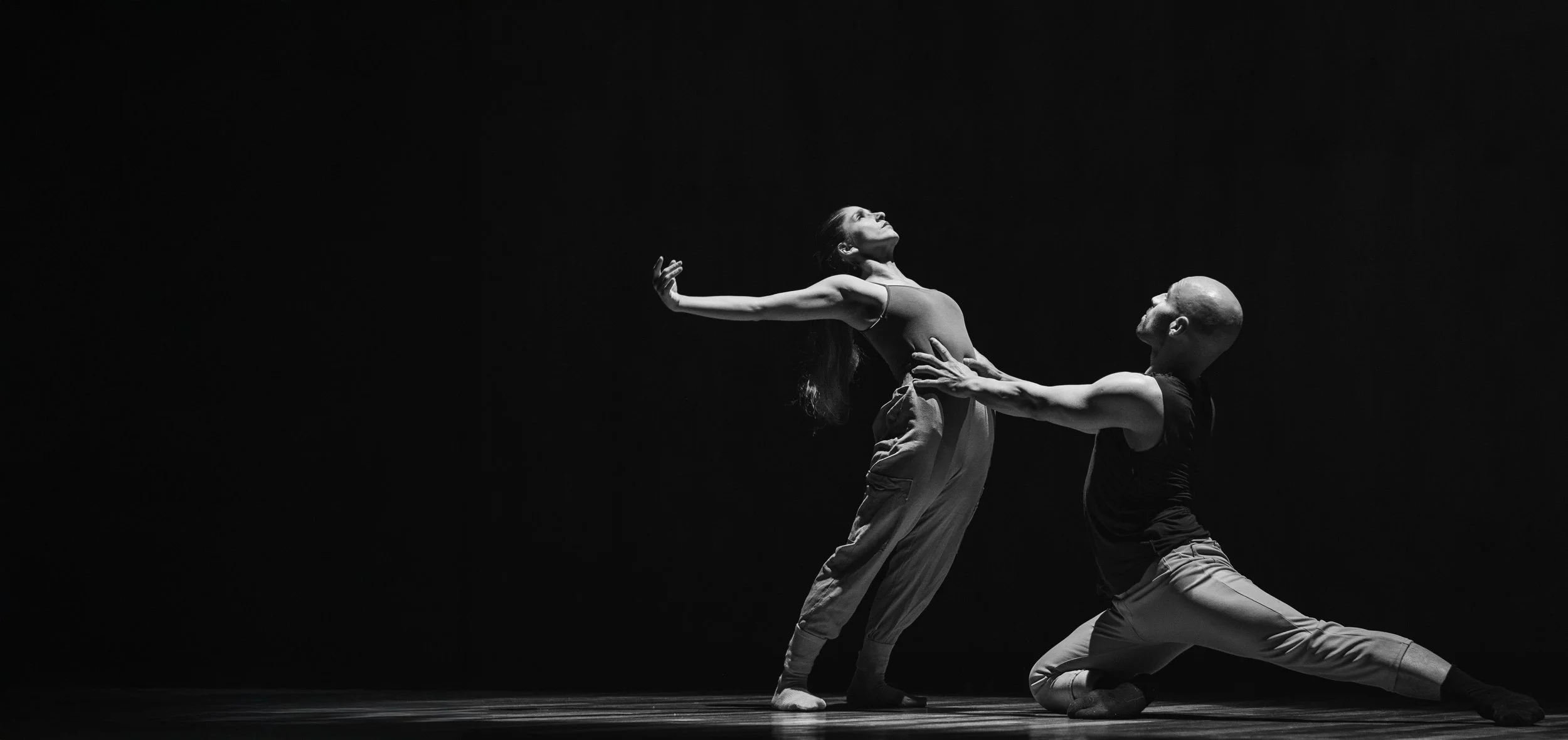human—
The art and rigour of
a CFO’s first season
are we
dancer?
The art and rigour of
a CFO’s first season
The evening after we concluded the last of our interviews with seasoned CFOs, we went to the ballet. We had debated where in the auditorium to sit. High up in the circle, the full ethereal beauty of a piece unfolds: the dancers glide and leap apparently effortlessly. The precise synchronisation of movements among and between dancers creates loops and whorls of colour and light across the stage, merging with the music into a singular experience.
It’s mesmerising
On this particular evening, however, our seats were up front in the stalls, chins tilted slightly upwards to the stage. From here, the view is all muscle and sinew and sweat. When the dancers leap, you can feel in your chest the soft thud as they land. You can see the effort. Best of all, you can see the dancers’ faces, watch their eyes, and feel the connection they have with themselves, with the music, with one another, and with the audience.
The Killers famously ask, in their 2008 hit Human, ‘Are we human, or are we dancer?’; evoking, perhaps, the dilemma many of us face in our working lives around balancing performance and vulnerability, effort and ease, technical excellence and personal connection. Are we human, or are we dancer? The answer, for aspiring and new CFOs, is unequivocally both. We spoke with more than twenty Group CFOs in leading global companies across a variety of sectors, and every one of them spoke about how their roles require them to navigate complex stakeholder environments, weigh and reconcile often competing demands, respond in the moment to changing circumstances and operate simultaneously across the short and much longer term. Much like the ballet; close-up, it’s all technical expertise, incredible effort and profound connection; step back and it’s an exquisitely colourful, complex and choreographed performance.
For those at the top of their game, it's precisely this colour and dynamism that makes the CFO role so very rewarding – as if, after years of perfecting incredible technical skills in the studio, you finally have the opportunity to take to the stage:
The CFO role is wonderful – a better role than the CEO. You are part of making performance happen.
It’s a 360 degree perspective on the business… with the right to roam and the licence to get involved.
You can influence the whole organisation, shape strategy and shape the future. As CFO you see everything and get great data and so the diagnosis becomes powerful; you can see things others can’t and shape the debate.
And yet, of course, it is also true that the very same factors – complexity, movement, nuance – make the CFO role incredibly challenging.
So what is it that determines whether a new CFO will succeed in fully grasping the rich opportunities, the full breadth of the stage, that the role offers? We asked our group of leading CFOs to cast their minds back to the beginning and tell us what it was like to take on the role for the first time. What do they wish they had known at the outset that might help those taking the stage for the first time?
What we learned from our group overwhelmingly clearly, is that success depends on two things:
First – human – on a number of vital relationships and how effectively a new CFO develops, maintains and cherishes these; and
Second – dancer – on the accelerated development of some elevated skillsets.
are we dancer?
HUMAN:
A CFO does not dance alone – they are in a series of vital and interconnected relationships.
How effectively a new CFO develops, maintains and cherishes these relationships will itself be a critical factor in determining their success in their role. If we reflect on where we have seen new CFOs flounder, whatever the presenting issue in terms of business performance or functional challenge, there is inevitably an underlying fissure or fragility in a key relationship.
We can think of these vital relationships in four categories:
You & your role
The business
Your CEO & the Board
Investors & the Market
Vital relationships
The first vital relationship is with yourself – as a human, as a leader, and as a CFO. Think again of a dancer, perhaps dancing alone for now. Particularly if you’re in a stalls seat and can see their eyes, the first thing you’ll notice is the intense inward focus that a great dancer has: their self-mastery, their mind-body-connection, their capacity to completely own their role and their space and to project themselves exactly as they wish to be seen.
The new CFOs who succeed are those who contend with the scale and influence of their role. They invest time and effort in the self-reflection and self-development required to enable them to fully inhabit the role. This relationship with yourself is essentially grounded in the core skillset around presence discussed below. You can’t be fully present in your role unless and until you are fully present to yourself.
Take the time and space to get really clear on who you are, what you are here to do, and why you are doing it. What is your personal purpose in taking on this role? What is yours to give? And what do you hope the role will give you? This will then translate to your leadership brand – what you stand for; values, purpose, identity, priorities.
Most first time CFOs are focused on task, on “what needs doing” to the exclusion of almost everything else. In so doing, they miss the opportunity to land in the role with clear intent. More than one of our CFO group harbours a degree of regret about some combination of perfectionism, micromanagement and overwhelm in their first season.
It is vitally important to ask oneself regularly – what does this all look like from the stalls, or the back of the grand circle? What matters most from this wider perspective?
Figure out what you and only you can do in service of your purpose. Do those things. Prioritise fiercely, and then let the rest go.
Remember your own humanity in all of this. And don’t overlook everyone else’s. Think about what you need in terms of being in good relationship with colleagues, the business, your wider network. Think about what you have to offer, too, as a person as much as a CFO. How can you show your true self, be vulnerable, and build deeply trusting relationships?






